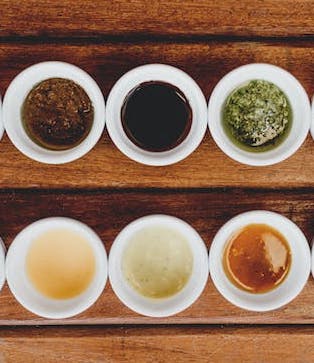Have you ever seen in a movie or read in a comic where someone who can’t pay for their meal in a restaurant ends up washing dishes? It seems like a simple and fair solution, right? But, have you ever wondered if this can actually happen in real life? Can you really roll up your sleeves and do the dishes in exchange for a meal you can’t pay for?
In this article, we will explore this interesting question. We will dive into the history of this idea, see how it is shown in popular culture, and learn about the laws and rules that restaurants must follow.

Table of Contents
No Dishwashing for Meal Payment in Restaurants
In today’s world, most restaurants have clear policies and procedures for handling situations where a customer can’t pay. Washing dishes isn’t one of them. Strict labor laws, hygiene standards, and the complexity of restaurant operations restrict a customer from jumping into the kitchen.
The Origin of the Dishwashing Scenario
The concept of dishwashing as compensation is deeply rooted in popular culture. It conjures images of a bygone era, a time when a town’s local diner could take a more personalized and community-oriented approach to their business. It’s a scenario often depicted in movies, TV shows, and comic strips, further cementing the notion in our collective consciousness.
But where did this idea originate? While it’s difficult to pinpoint its exact origins, the concept most likely evolved during the Great Depression era in the United States (1929-1939). During this period of economic hardship, many people couldn’t afford basic necessities, including food. It’s plausible that some restaurant owners, faced with customers who couldn’t pay, might have allowed them to work off their debt by washing dishes or doing other chores around the establishment.
Examples in Popular Culture
A classic example of this scenario can be seen in the iconic American TV show, “The Andy Griffith Show.” In one episode, titled “Andy the Matchmaker,” Barney Fife (played by Don Knotts) ends up washing dishes to pay for his meal after realizing he forgot his wallet.
In the world of comic strips, we have the timeless example of Jughead from the “Archie” comics. Jughead is often depicted washing dishes at Pop’s Chocklit Shoppe to pay for his never-ending appetite.
In modern times, this concept has been reimagined in various ways. For instance, in the movie “A Cinderella Story,” the character Sam (played by Hilary Duff) is forced to work as a waitress in a diner to pay off her stepmother’s bills.
It’s important to note that while these examples provide entertainment and nostalgia, they don’t represent the realities of current labor laws and health regulations. In real-life scenarios, as discussed earlier, allowing a customer to wash dishes as compensation for a meal is not legally feasible due to numerous federal regulations that protect health, safety, and worker rights.
Legal Implications for Restaurants
Allowing a customer to wash dishes as compensation opens a can of worms legally. Issues related to labor laws, insurance liability, and even potential exploitation arise. It’s a risk that most restaurant owners are unwilling, and often unable, to take.
Food and Drug Administration (FDA) regulates who can handle food and dishes in a restaurant. The FDA Food Code outlines policies to prevent foodborne illnesses. According to this code, someone off the street washing dishes could present a health risk, as they have not been trained in necessary food safety practices and likely have not undergone health screenings that regular employees do. Therefore, allowing an untrained, unscreened individual into a kitchen violates health regulations.
Occupational Safety and Health Administration (OSHA) establishes and enforces safety standards in the workplace, including restaurants. A member of the public, unfamiliar with the layout and risks of a commercial kitchen, is at a much higher risk of injury. The restaurant could be held liable for these injuries, as the individual is not covered under workplace insurance.
U.S. Department of Labor Wage and Hour Division (WHD) administers and enforces labor standards, such as minimum wage, overtime pay, recordkeeping, and youth employment. Washing dishes to pay off a meal could result in the individual effectively working for less than the minimum wage, which is a violation of federal labor laws. This could lead to hefty fines for the restaurant.
Equal Employment Opportunity Commission (EEOC) enforces federal laws that make it illegal to discriminate against a job applicant or an employee. Allowing only certain customers to work off their bill by washing dishes could potentially be viewed as a form of discrimination.
The Perspective of Restaurant Owners
Owners and managers of restaurants prioritize providing a positive dining experience for their patrons. However, turning customers into temporary dishwashers isn’t exactly a recipe for success. It disrupts the professional environment and potentially undermines the staff’s morale.
Other Forms of Compensation in Restaurants
When a patron can’t pay, restaurants usually suggest other means of compensation. These may include leaving an item of value as collateral, arranging to pay the bill later, or using digital payment methods. Dish-washing doesn’t typically enter the equation.
Exploring the Ethics of the Dish-Washing Option
While the concept of washing dishes for a meal might seem romantic or adventurous, it raises ethical questions about labor, dignity, and the value of work. Is it fair to trade an hour’s worth of hard labor for a meal? This section explores these moral quandaries.
Possible Scenarios: When Restaurants Might Consider This Option
While rare, there could be instances when washing dishes as compensation might be a viable option. These situations usually occur in smaller establishments with close-knit communities or a personal connection between the customer and owner.
How Restaurants Handle Customers Who Cannot Pay
Most eateries have clear procedures for dealing with unpaid bills. This section offers an insight into the standard operating procedures, from negotiating a later payment to involving law enforcement in more severe cases.
FAQs
Are there other ways to compensate if I can’t pay at a restaurant?
While not common, there are anecdotal stories from various countries. However, it’s not a standard practice or socially accepted norm anywhere in the world.
See Related Posts
Bet Казино – Время побеждать
Джонни 24 Казино – Играй на деньги
Попробуй сейчас
Казінo Slot City Взлети к успеху
Казино F1 Бонус За Регистрацию – Рискни и выиграй
Spider Hoodies for Kids Cool and Fun Designs for Little Ones

Best Restaurant to Have a Birthday Party

Best Restaurants for Free WiFi

Best Restaurant Sauces You Can Buy


